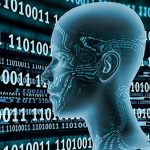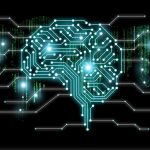Fake news. Two words you'll have heard a lot of over the past year or so. It's been such a popular term that it even made Word of the Year for 2017. But there is a much more to it than being a large part of Trump's vocabulary. This is a uge problem that needs to be addressed and tackled. So, what is it then? Isn't ALL news in some way a bit fake - blown out of proportion, … [Read more...] about Tackling Fake News, and Deep Fakes With Artificial Intelligence
Artificial Intelligence
Learn about the latest developments in artificial intelligence and how it is transforming industries around the world. Our website offers insights and resources for understanding AI and its applications.
AI and Machine Learning in Software Development: How it Can Benefit Developers
Artificial Intelligence and Machine Learning have disrupted every industry including retail, manufacturing, transportation and even customer support. Software development is no exception where machine learning and AI can enhance the process of traditional software development cycle. Research report as of September 2017 by MarketandMarkets predicts the Machine Learning market … [Read more...] about AI and Machine Learning in Software Development: How it Can Benefit Developers
Why the Future Will Never Be Slow Again
The fast-changing, uncertain and ambiguous environments that organisations operate in today, require organisations to re-think all their internal business processes and customer touch points. In addition, due to the availability of Emerging Information Technologies such as big data analytics, blockchain and artificial intelligence, it has become easier for startups to compete … [Read more...] about Why the Future Will Never Be Slow Again
How Deep Learning Will Change Customer Experience
Deep learning is a sub-category within machine learning and artificial intelligence. It is inspired by and based on the model of the human brain to create artificial neural networks for machines. Deep learning will allow machines and devices to function in some ways as humans do. Dr. Rodrigo Agundez of GoDataDriven is a co-author of this article and very enthusiastic about the … [Read more...] about How Deep Learning Will Change Customer Experience
How Mobile AI Will Transform Our Lives
The age of Artificial Intelligence (AI) is almost upon us. Rapid developments in machine learning have allowed us to build better, smarter machines that are capable of making decisions and handling tasks similar to humans. Some of these developments are also being implemented in mobiles to create the next generation of smarter phones. I attended the recent Huawei Global Analyst … [Read more...] about How Mobile AI Will Transform Our Lives
What is artificial intelligence (AI)?
AI refers to the development of computer systems that are able to perform tasks that normally require human intelligence, such as recognizing patterns, learning from experience, and problem-solving.
AI systems can be trained to perform these tasks through the use of algorithms and machine learning techniques, which allow them to analyze and interpret data and make decisions based on that analysis. AI has the potential to significantly improve the efficiency and accuracy of many tasks, and is being applied in a wide range of industries and applications.
How is artificial intelligence used?
AI is used in a variety of industries, including healthcare, finance, retail, and transportation, to improve efficiency and productivity.
For example, in healthcare, AI can be used to analyze medical images or electronic health records to identify patterns and make diagnoses, while in finance, it can be used to identify fraudulent activity or optimize investment strategies. In retail, AI can be used to personalize customer experiences or predict demand for products.
What are some examples of artificial intelligence?
Examples of AI include self-driving cars, language translation software, and virtual assistants like Apple’s Siri or Amazon’s Alexa.
Other examples include chatbots that can handle customer service inquiries, predictive analytics tools that can forecast future outcomes, and recommendation engines that can suggest products or content based on user preferences.
What are the potential risks and benefits of artificial intelligence?
AI has the potential to revolutionize industries and improve our daily lives, but it also raises ethical concerns and the risk of job displacement. One concern is the potential for AI systems to perpetuate or amplify biases present in the data used to train them, leading to unfair or discriminatory outcomes.
There is also the risk that AI could be used to automate tasks or make decisions that have negative consequences for humans.
On the other hand, the benefits of AI include improved efficiency and accuracy, the ability to process and analyze large amounts of data quickly, and the potential to tackle complex problems that are difficult for humans to solve.
How can I learn more about artificial intelligence?
Datafloq offers a wide range of AI articles. There are many resources available for learning about AI, including online courses, books, and industry events.
Some popular online courses include those offered by Coursera, edX, and Udacity. There are also many books on AI that provide a broad overview of the field or delve into specific topics, such as machine learning or natural language processing.
Attending industry events, such as conferences or meetups, can also be a great way to learn about AI and network with others in the field. It is important to stay up-to-date on the latest developments in the field, as AI is a rapidly evolving field with many new advances and applications emerging all the time.






